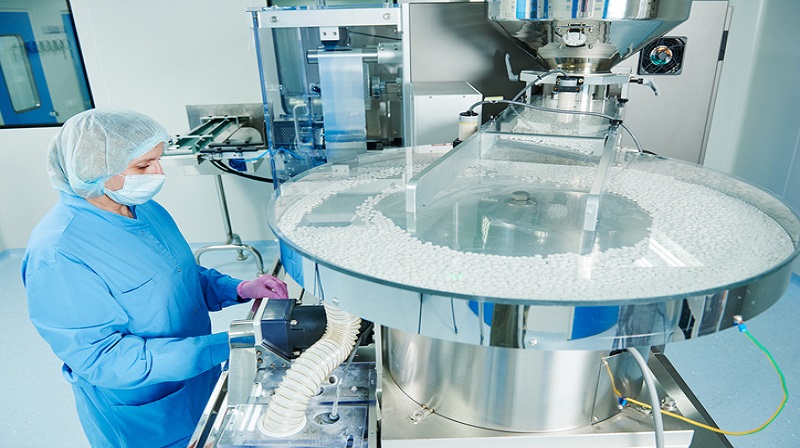
Transforming Pharma Operations with Intelligent Industrial Automation
- by PLC
- Jul 05, 2023
In recent years, industrial automation has revolutionized various sectors, and the pharmaceutical industry is no exception. With advancements in technology, automation systems have found widespread applications within pharmaceutical manufacturing, contributing to increased efficiency, enhanced product quality, and improved safety. This blog post explores some key areas where industrial automation is making a significant impact in the pharmaceutical industry.
Manufacturing and Packaging:
Industrial automation plays a vital role in streamlining pharmaceutical manufacturing processes. Automated systems such as robotic arms, conveyor belts, and automated guided vehicles (AGVs) enable precise and efficient handling of raw materials, accurate dosing and mixing of ingredients, and controlled manufacturing conditions. These systems not only ensure consistent product quality but also minimize the risk of human errors and contamination.
In packaging operations, automation technologies enable high-speed packaging, labeling, and serialization, reducing manual labor requirements and increasing throughput. Automated inspection systems utilizing machine vision can detect defects, verify product information, and ensure compliance with regulatory standards.
Quality Control and Testing:
Quality control is of utmost importance in the pharmaceutical industry to ensure the safety and efficacy of drugs. Industrial automation systems are employed to perform various quality control tests, including weight measurement, leak detection, and visual inspection. Automated instruments and sensors enable rapid and accurate analysis of samples, reducing the time and resources required for testing.
Additionally, automation facilitates data collection and analysis, enabling real-time monitoring of critical process parameters. This ensures that any deviations from set standards can be quickly identified and corrective actions can be taken promptly.
Inventory Management:
Efficient inventory management is crucial for pharmaceutical companies to maintain an uninterrupted supply chain. Automation technologies, such as barcode scanning, RFID tracking, and inventory management software, enable accurate tracking and control of inventory levels. These systems provide real-time visibility into stock levels, expiration dates, and storage conditions, allowing for proactive inventory management, minimizing wastage, and ensuring compliance with regulatory requirements.
Regulatory Compliance:
The pharmaceutical industry is subject to stringent regulatory guidelines to ensure product safety and adherence to quality standards. Industrial automation can assist in meeting these requirements by providing traceability, documentation, and audit trails throughout the manufacturing process. Automated systems can generate electronic batch records, capture process data, and ensure that processes are performed consistently and in compliance with regulatory guidelines.
Cleanroom Automation:
Cleanrooms are critical environments within the pharmaceutical industry, requiring stringent controls to maintain air quality and prevent contamination. Automation technologies such as HVAC (Heating, Ventilation, and Air Conditioning) systems, environmental monitoring systems, and automated cleaning systems help maintain optimal cleanroom conditions. These systems ensure precise control of temperature, humidity, and particle levels, minimizing the risk of product contamination and ensuring compliance with regulatory standards.
Industrial automation has transformed the pharmaceutical industry by improving manufacturing efficiency, enhancing product quality, and ensuring regulatory compliance. From streamlined manufacturing and packaging processes to robust quality control and inventory management, automation technologies continue to revolutionize the pharmaceutical sector. By adopting automation solutions, pharmaceutical companies can achieve greater operational efficiency, reduce costs, and ultimately deliver safe and effective medications to patients worldwide.













